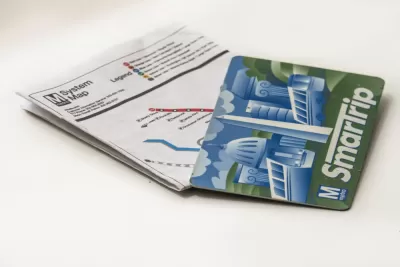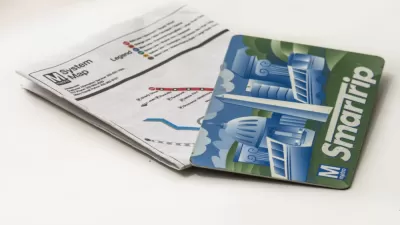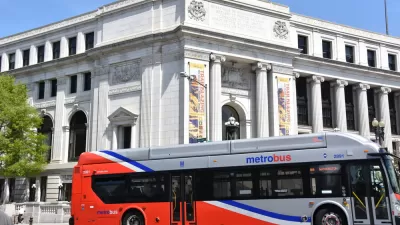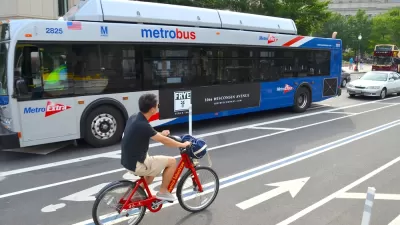A proposal to charge riders who pay fare in cash an extra 25 cents faces criticism.

Ron Thompson writes:
In an effort to speed up bus trips, WMATA has proposed a $0.25 fee for actions which slow down boarding, including paying with cash and reloading SmarTrip cards onboard. While speeding up bus service would be a boon for all riders, this proposal shifts the responsibility for dealing with a systemic issue onto individual clients—the poorest ones.
As implied by the end of that passage, Thompson suggests that the transit agency has many responsibilities in reducing dwell time, as do external factors like single-occupancy drivers. "Yet rather than focusing on the root causes of the issue, the agency is passing the buck to its most vulnerable—and most faithful—riders," according to Thompson.
Research noted in the article finds that many low-income people are also underbanked, and a penalty for cash payment would reinforce the perception that some riders matter more than others, according to Thompson.
FULL STORY: If WMATA makes buses more expensive for cash users, low-income riders could lose

Alabama: Trump Terminates Settlements for Black Communities Harmed By Raw Sewage
Trump deemed the landmark civil rights agreement “illegal DEI and environmental justice policy.”

Planetizen Federal Action Tracker
A weekly monitor of how Trump’s orders and actions are impacting planners and planning in America.

Why Should We Subsidize Public Transportation?
Many public transit agencies face financial stress due to rising costs, declining fare revenue, and declining subsidies. Transit advocates must provide a strong business case for increasing public transit funding.

Blinded by the Light: When Brighter Headlights Decrease Safety
Bright LED headlights can create glare and reduce visibility for other drivers and pedestrians.

Study Links Covid and Poor Driving
The effects of the virus, including ‘brain fog,’ can make driving more difficult and dangerous.

Waymo Gets Permission to Map SF’s Market Street
If allowed to operate on the traffic-restricted street, Waymo’s autonomous taxis would have a leg up over ride-hailing competitors — and counter the city’s efforts to grow bike and pedestrian on the thoroughfare.
Urban Design for Planners 1: Software Tools
This six-course series explores essential urban design concepts using open source software and equips planners with the tools they need to participate fully in the urban design process.
Planning for Universal Design
Learn the tools for implementing Universal Design in planning regulations.
Caltrans
Smith Gee Studio
Institute for Housing and Urban Development Studies (IHS)
City of Grandview
Harvard GSD Executive Education
Toledo-Lucas County Plan Commissions
Salt Lake City
NYU Wagner Graduate School of Public Service





























